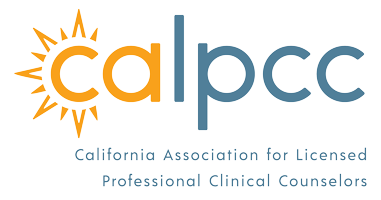LPCC Law - General Questions
What is this law all about?
The counselor licensure bill, that was approved by the Governor on October 11, 2009 and went into effect January 1, 2010, regulates Licensed Professional Clinical Counselors (LPCCs) with requirements that are on par with California Marriage and Family Therapists (MFTs) and Licensed Clinical Social Workers (LCSWs) and with Licensed Professional Counselors (LPCs) in 49 states. It provides a third master’s-level license to practice psychotherapy in California. It does not affect the long-established LMFT and LCSW licenses. All 50 states now license LPCs, LMFTs and LCSWs.
Which state agency regulates this license and are LPCCs represented on the Board?
The Board of Behavioral Sciences (BBS), which currently regulates LMFTs, LCSWs and Licensed Educational Psychologists (LEPs), regulates the LPCC license. The 13-member Board includes two LMFTs, two LCSWs, one LEP, one LPCC and seven public members. Board members are appointed for a term of four years.
What are the requirements for the LPCC license?
View summaries of the requirements for those who began their degrees before 2012, for those who began their degrees in 2012 and after, and for those who received their education out-of-state.
Why are the requirements so rigorous?
Requirements needed to be on par with the existing professions regulated by the Board of Behavioral Sciences in California, the MFTs and LCSWs, and with professional counselors licensed in other states.
Which counselors does it cover?
The license is meant to cover the general practice of counseling. It is not meant to cover specialties, which are certified by national organizations, much like other professions, such as medicine. It will cover Licensed Professional Clinical Counselors (LPCCs), who provide psychotherapy. It will be unlawful to practice professional clinical counseling, as defined in the bill, or use the title, Licensed Professional Clinical Counselor, without a license.
View the LPCC law sections 4999.82–4999.88 regarding enforcement.
Are counselors able to practice without the license?
Counselors cannot practice psychotherapy until they are licensed by the BBS, unless they are exempt from licensure.
Which counselors are exempt from this bill?
Counselors who work in exempt settings (government agencies, non-profit and charitable agencies, and educational institutions) and counselors who do not practice psychotherapy are exempt. Also exempt are members of the clergy, physicians and attorneys. View 4999.22 regarding exemptions
Why is the word “clinical” added to the license title?
The bill requires clinical coursework, experience, and examination. Including the word “clinical” is in line with other states’ laws and clarifies the type of counselors that this law licenses. Other states with these requirements use titles such as Licensed Professional Clinical Counselor, Licensed Clinical Professional Counselor, Licensed Professional Mental Health Counselor and Licensed Clinical Mental Health Counselor.
Where can counselors get an application for the LPCC license or for intern registration?
Applications are available from the BBS website www.bbs.ca.gov.
Who can answer questions about my qualifications?
The BBS will evaluate your qualifications when you submit your application. Your application fee covers this evaluation. In order to submit as complete an application as possible, counselors should review the requirements on the CALPCC website and on the BBS website. Members of CALPCC can arrange a consultation with a CALPCC Board Member or the Executive Director, if they have questions that are not answered on the CALPCC website.
What ethical code will guide LPCCs in California?
The BBS will use the American Counseling Association’s Code of Ethics and the unprofessional conduct sections in the LPCC law. http://counseling.org/Resources/aca-code-of-ethics.pdf
Once I am licensed as a LPCC in California, will I automatically be able to practice in another state?
You will need to apply to be licensed in another state, for each state licenses its own counselors. Although the requirements for LPCs will vary slightly from state to state, the education and supervision requirements are very similar, and all 50 states use one or both of the national counselor exams. California has adopted the National Clinical Mental Health Counselor Examination (NCMHCE), which many states recognize for licensure.
Will future MFT and LPCC interns be able to “double count” supervised hours, so they can apply for both licenses?
The BBS has determined that supervised hours can count toward both licenses, if the requirements for each profession are met. Once a counselor is registered for a particular license, he or she can begin accruing hours for that license.
What are the continuing education requirements for LPCCs?
The continuing education requirements are 36 hours every two years.
Are LPCCs able to be reimbursed by third party insurance?
CALPCC sponsored a bill in the 2011 legislative session. which amended the Insurance Code to include LPCCs. California LPCCs were added as providers effective July 1, 2012. LPCCs were added as qualified providers of Medi-Cal specialty mental health services February 21, 2014.
